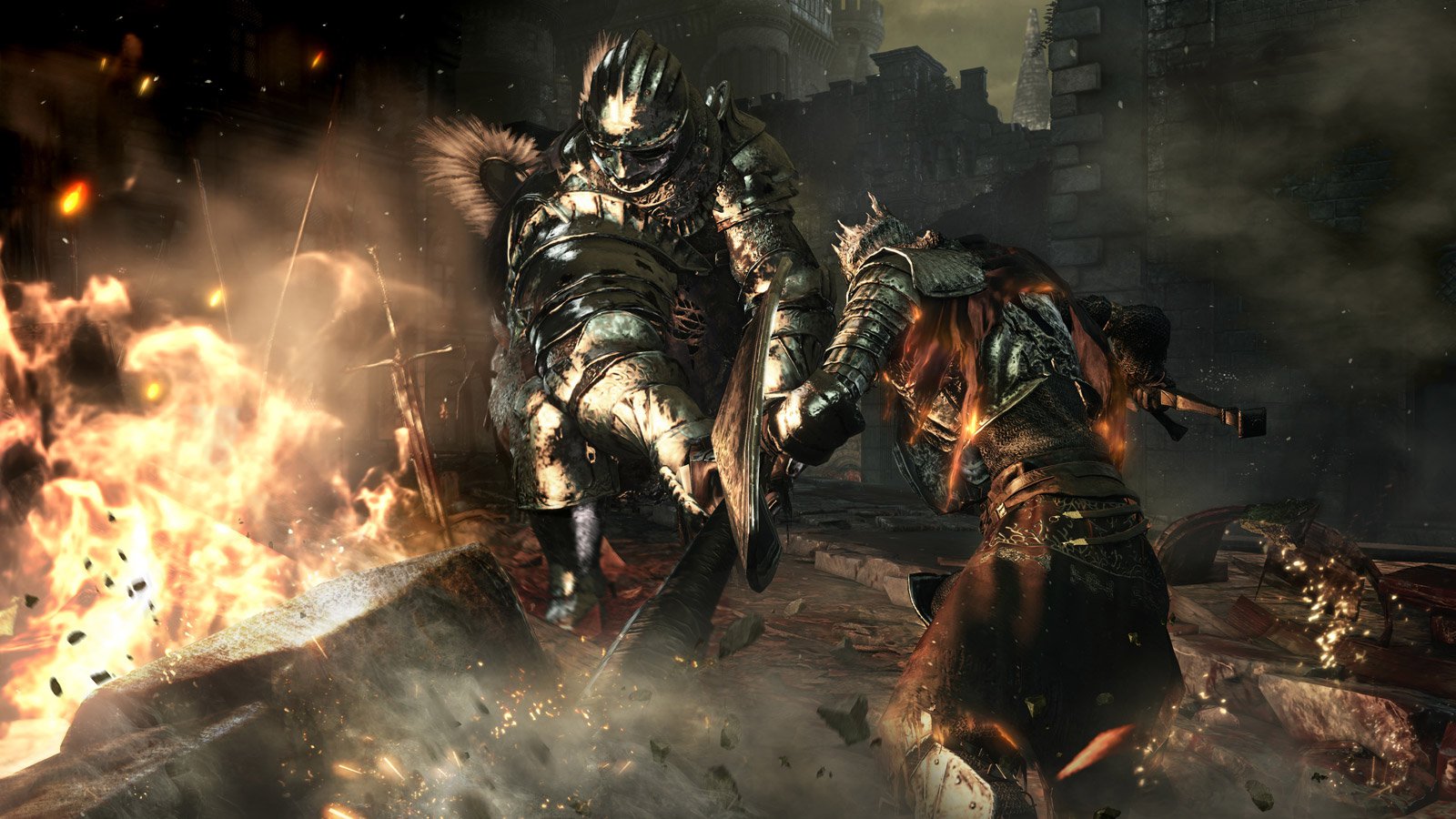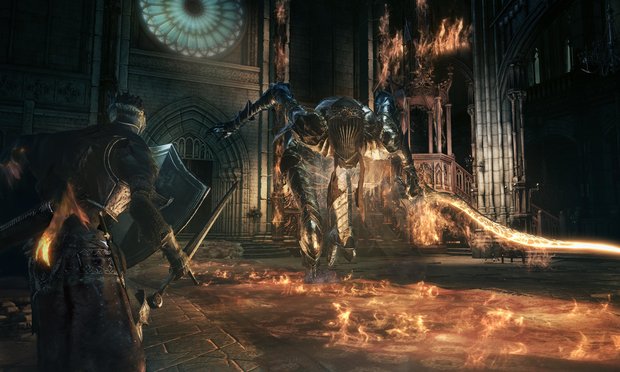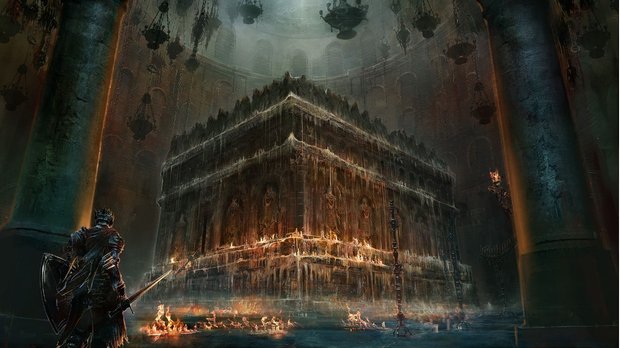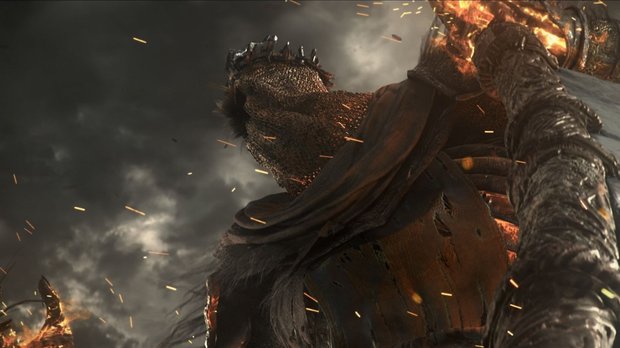Is it time for the Dark Souls universe to burn itself out?
When it comes to sequels to games as heady with variables, as dense with buried import as Dark Souls, there’s a tendency to not see the wood for the trees - and anybody who has explored Darkroot Garden will know how dangerous a mistake that can be. So far, discussion of Dark Souls 3 has turned on a couple of topics: how it expands and adjusts the franchise’s legendary combat, and how the mundane details of the plot fit into the existing world. Is that Drangleic Castle in the background during the announcement trailer, or Anor Londo? What exactly does the new weapon stance system bring to PvP, and what are the implications of a shortbow that can be quick-fired in a brawl?

These are questions that preoccupy me too, but they’re eclipsed by a smouldering anxiety - ignited when first I read about Dark Souls 2, the only Souls game not to be directed by Hidetaka Miyazaki, and fanned to a blaze as I wandered its loose and tapering landscape, kicking at dissatisfying parallels with the original. Sometimes you play a game that is so good, so complete, the idea of a follow-up seems an insult: Portal is one of the titles that springs to mind. In this case, the problem is also that Dark Souls is a story that eats its own tail. If you’ve yet to complete the game, you might want to do so before reading on.
When first you set foot in the Kiln of the First Flame, with its mountainous ashpiles and fanged ribs of slag, had you come simply to kill, or to kindle? To whom did you give the Lordvessel, after prising it from the hands of a goddess at the summit of Anor Londo? These are theoretically the most important decisions you’ll make in the world of Dark Souls, but I’d argue that they’re actually as meaningless in the grand scheme of things as whether you rock a sword or a dagger during your exploration of Sen’s Fortress. For Dark Souls is at root a complex meditation on the idea that all endeavours follow a predetermined path and are thus, futile - all firmly subject to a cosmic feedback loop of birth, growth and decay.
The game poses a transfer of power from one “Age” to the next, from the gods of Fire to the denizens of Dark, and asks the player to decide which of these two elemental forces will come out on top. So far, so BioWare. But in the process, it hints at how both parties are doomed to the same ultimate fate. Opt to take the former Sunlight Lord Gwyn’s place at the Kiln’s heart and surrender yourself to the First Flame, and you’re simply prolonging the Age of Fire’s decline. Choose to let the flame die and become the new Lord of the Dark, and you’re assuming the trappings of power after spending an entire game learning that even the greatest rulers aren’t above the law of entropy.

From’s bleak triumph is to shatter the ground beneath the hope that a narrative can ever really take us anywhere, save back to where we began, armed with the knowledge that our striving was in vain - or, less pessimistically, that the point of the destination was to bring about the journey. That’s a provocative framework for a role-playing game - a genre that has always sought naively to make you feel like the master of your destiny. But it’s a pretty forbidding foundation for a narrative sequel, however many loose ends there may be in the lore itself. How do you compose a follow-up to a game which suggests that every hero’s journey is one and the same, a shared cycle of suffering and revelation, without missing the point entirely?
It would be one thing, perhaps, if this revelation were thrashed out purely in the endgame. But the beauty of Dark Souls is that almost every part of it speaks in some way to the whole. There are the other lords of Lordran, for starters, all scarred and twisted by their efforts to escape their own mortality. Seath the Scaleless in his tower, a dragon turned to crystal by botched scientific experimentation. The Witches of Izalith, who attempted to clone the world’s primeval spark only to conjure up a race of abominations. Dark Sun Gwyndolin, preserving the buxom illusion of his sister Gwynevere on Anor Londo’s throne - a ridiculously over-compensatory fertility idol, crafted to keep up appearances while Gwyndolin’s father Gwyn sets out to restore the First Flame.
These entities are tarnished by their refusal to acknowledge the implications of the event that raised them to lordship, the emergence of “disparity” - the possibility of difference between qualities, life and death, fire and darkness. As recalled in the game’s intro, the discovery of the First Flame is the means by which Lordran’s would-be deities are able to overwhelm the so-called everlasting dragons, rulers of the formless, undifferentiated nothing that is the primordial world. But the Flame’s birth is also a guarantee that these new gods will fall in turn, because light presupposes its absence, and every blaze consumes itself eventually.
Sign up to the GamesRadar+ Newsletter
Weekly digests, tales from the communities you love, and more

The elegance and coherence of Dark Souls’s fatalism is all the more apparent when you compare it to another, very different game, which deals more explicitly and not a little clunkily with the idea that history is a repeat scenario with endless local variations, constructed around broadly the same protagonists, antagonists and revelations. The idea of an inescapable cycle is everywhere in Bioshock Infinite, from the false binary motif of the songbird and the cage, where both entities are synonymous in context with imprisonment, through the Stoppardian absurdity of the coin that always comes up heads, to that baroque, B-movie ‘gotcha’ of a finale.
Infinite isn’t as successful as Dark Souls because it fails to create the same kind of reciprocity between this theme and what you actually do in the game, which is merely to blast things apart in order of presentation; the ending feels to me like an admission of this defeat, a disgusted throwing-up of the hands at the cramped range of action that is possible within its perpetually recycled world. Dark Souls, by contrast, has its levelling system, which renders you complicit with Gwyn’s obstinacy in the face of inexorable decline by having you burn the essence of life and consciousness itself to improve your attributes. Giving things to the flame is a multi-faceted act in Dark Souls. It’s presented as a form of self-sacrifice, hence the supplicatory posture you assume on recovering your Humanity. But it comes to feel strangely reckless, as you feed the souls of creatures great and small to the bonfire and to the furnace. You eventually see everything in the universe, however hideous or exquisite, majestic or sad, as nothing more than fuel.

I think about all this, and then I look at Dark Souls 3, a game that appears to follow on directly from the events of Dark Souls, and I can’t help but doubt. The real sticking point is naturally Dark Souls 2, a game that - relatively uninspired world design and questionable tweaks to things like enemy spawning aside - failed to exceed its predecessor not because it strayed from the formula, but because it sought only to replicate the key ingredients in a different context. This struggle to squeeze further gains out of a proven concept recalls, for me, the willfulness of the gods who set out to revive the flame against the coming of night, refusing to concede that the existence of one is also the inevitability of the other. And much as I admire the work of Hidetaka Miyazaki, I see no evidence right now that Dark Souls 3 will avoid the same pitfalls.
There is, nonetheless, something very sympathetic in the attempt. Even noble. The existential predicaments Dark Souls invokes arguably extend outside the reach of human understanding, but they’re questions we’re all called upon to wrestle with, by dint merely of being alive at all. As a character in Dark Souls 2 comments: “Beyond the scope of light, beyond the reach of Dark - what could possibly await us? And yet, we seek it, insatiably. Such is our fate.”



